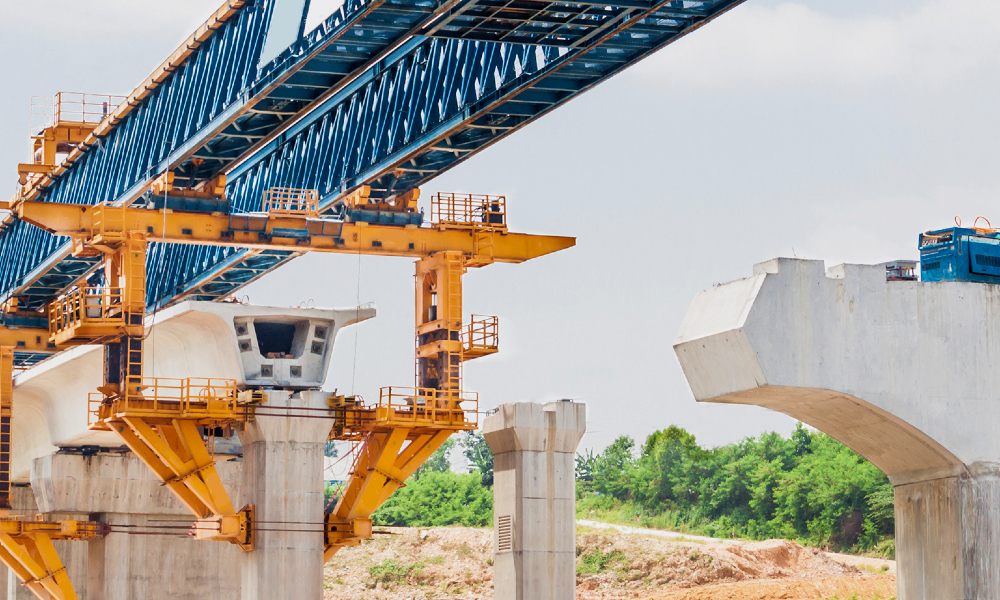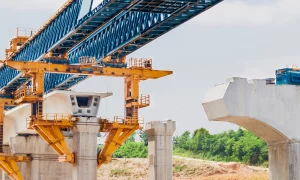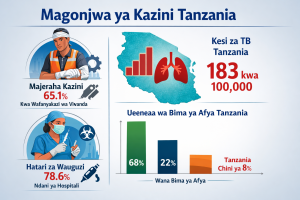
Infrastructure key to the realization of the African Continental Free Trade Area
The Missing Link
The African Continental Free Trade Area (AfCFTA) just entered its third year since its ratification. International bodies, governmental and non-governmental, continue to emphasize the need for the African continent to invest in quality and sustainable infrastructure if the AfCFTA is to make good on its promise. The fee trade agreement between African countries aims to create a single, continent-wide market for goods, services, and people. Coming into effect in January 2018, the goal of the agreement is to increase trade and investment within Africa, promote economic integration, and boost economic growth and development on the continent. However, Africa grossly lacks the infrastructure to support the actualization of the aspirations. The objectives of the AfCFTA in boosting intra-African trade can, however, only be achieved with a commitment to build quality and sustainable infrastructure to support its implementations. It is not lost on the continent that Africans themselves must work hard at implementing the agreement as a response to its economic growth, employment, and poverty challenges.
Infrastructure is a key factor in determining the success of the African Continental Free Trade Area. If the continent is to achieve its trade aspirations, the free movement of goods, services, and people across the content requires an effective, efficient, robust network of roads, ports, airports, and other transportation systems. While the agreement is in its third year of implementation, the continent is still dealing with a poor infrastructure that impedes the ease of doing business. This is against the backdrop of decades of common market agreements in Africa, including ECOWAS, SADC, and the East African Community (EAC). The continent lacks an adequately linked air transport system, a railway system to move its merchandise, and problematic sea links. This underscores the need for domestic shipping lines that can facilitate the movement of goods and people across nations in the continent.

It is not lost on implementors on the importance of infrastructure development in Africa towards supporting the adoption of hygienic practices, delivery of health services, remote working, remote learning, and continuation of activities. This is particularly in the event of disruptive factors such as the recent Covid-19 downturns that crippled supply and demand logistics in the continent. Hiccups along transport corridors, including police and customs officials’ demand for bribes, must cease for the AfCFTA to bear fruit. As a continent, such challenges make the agreement pointless and uncompetitive in the face of the modern scramble and partition of Africa. The lack of modern transportation systems and efficient ports can make it difficult for African goods to reach international markets, reducing their competitiveness relative to goods from other regions. To fully realize the benefits of AfCFTA, African countries must prioritize investment in infrastructure. Only then can Africa take advantage of the opportunities presented by AfCFTA and build a strong and competitive continent-wide economy by filling the $100 billion infrastructural development gap.
Increased Participation in the Private Sector
Infrastructure financing in Africa should have a public-private partnership with increased private-sector participation. For instance, the African Development Bank Group (AfDB) has injected a billion-dollar fund into the Addis-Nairobi-Mombasa 1,000-kilometer road corridor geared towards increasing trade between the two nations by 400%. This is in addition to the Kazungla Bridge that links Botswana to Zambia, reducing a 14 days journey to one hour. The domestic private sector should be embraced. African countries can count on the private sector in handholding institutional investors to invest more in Africa to change its infrastructure outlook. Proven capabilities of private entities such as the Africa Investment Forum in bridging investment to Africa, considering its over $110 billion mobilized in deals and commitment, should be factored into the AfCFTA agenda. Utilizing the insurance investors and the sovereign wealth fund that Africa holds, combined with the capability of private sector players to mitigate risks, will catapult the development of Africa’s infrastructure. The gateway to self-sufficiency and industrialization infrastructure is the consideration of the private sector.
“It is not lost on the continent that Africans themselves must work hard at implementing the agreement as a response to its economic growth, employment, and poverty challenges.”
Good Governance For A Start
For Africa to realize the free trade area agreement promise, creating the capacity and enabling environment for driving good governance out to be prioritized. Good governance can help create a supportive environment for infrastructure development and ensure that resources are allocated and used to maximize their impact. Good governance practices, such as transparency, accountability, and effective management of public resources, can help attract investment and support the development of infrastructure projects. This is important because much of the funding for infrastructure in Africa comes from foreign and private sources, and investors are more likely to invest in countries with a strong reputation for good governance. Good governance will be critical in the development of infrastructure that is sustainable and equitable. Poorly planned and managed infrastructure can result in negative social and environmental impacts, such as displacement of communities, loss of biodiversity, and degradation of natural resources, negating the gains of the AfCFTA.
The demon that is Corruption
Corruption is a major issue in many African countries and continues to undermine infrastructure development. Corruption leads to the misallocation of resources, slow decision-making, and increased costs for infrastructure projects. Increased costs, longer delays, and reduced competitiveness along transport corridors must be handled with a return to African ethos. Corruption further leads to the misallocation of resources, making it more difficult for governments to invest in trade-related infrastructure, such as ports, highways, and airports. Cryptocurrencies and blockchain technology have the potential to help mitigate corruption in Africa by improving transparency and reducing the opportunities for fraud and illicit activities. Headlined under the AfCFTA ought to be collaboration and information sharing between state agencies and private entities in dealing with loopholes for corruption and bribery to enhance transparency and effectiveness along transport corridors. This is an adequate support mechanism for the existing transport network and lays the ground for its continued development.
Muoki Musila is an Kenyan based economist. These are the writer’s own opinions and do not necessarily reflect the viewpoints of Liberty Sparks. Do you want to publish in this space? Contact our editors at [email protected] for further clarification.



